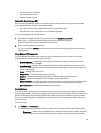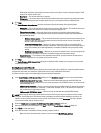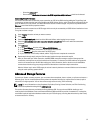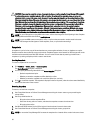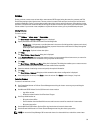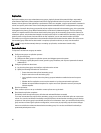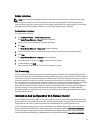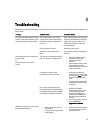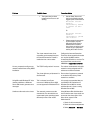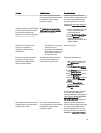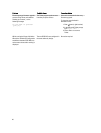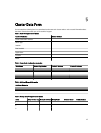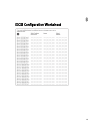
4
Troubleshooting
The following section describes general cluster problems you may encounter and the probable causes and solutions for
each problem.
Problem Probable Cause Corrective Action
The nodes cannot access the storage
system, or the cluster software is not
functioning with the storage system.
The storage system is not cabled
properly to the nodes or the cabling
between the storage components is
incorrect.
Ensure that the cables are connected
properly from the node to the storage
system. For more information, see
Cabling Your Cluster for Public and
Private Networks.
One of the cables is faulty. Replace the faulty cable.
Volumes are not assigned to the
hosts.
Verify that all volumes are assigned to
the hosts.
One of the nodes takes a long time to
join the cluster.
Or
One of the nodes fail to join the
cluster.
The node-to-node network has failed
due to a cabling or hardware failure.
• Check the network cabling
and verify that the multi-
initiator check box is
selected.
• Ensure that the node-to-node
interconnection and the
public network are connected
to the correct NICs.
Long delays in node-to-node
communications may be normal.
• Verify that the nodes can
communicate with each other
by running the ping command
from each node to the other
node.
• Try both the host name and IP
address when using the ping
command.
One or more nodes may have the
Internet Connection Firewall enabled,
blocking Remote Procedure Call (RPC)
communications between the nodes.
• Configure the Internet
Connection Firewall to allow
communications that are
required by the Microsoft
Cluster Service (MSCS) and
the clustered applications or
services.
• For more information, see the
article KB883398 at
support.microsoft.com.
Attempts to connect to a cluster using
Cluster Administrator fail.
• The Cluster Service has not
been started.
• A cluster has not been formed
on the system.
• Verify that the Cluster Service
is running and that a cluster
has been formed.
43



